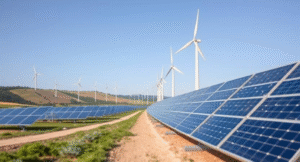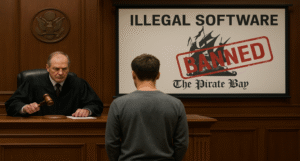- Proposal of a new temporary framework for state aid in crisis situations (war events in Ukraine)
The European Commission (EC) is 10.03.2022. sent to the Member States for consultation a draft proposal for a State aid Temporary Crisis Framework to support the EU economy in the context of war in Ukraine.
The draft proposal is based on Article 107(3)(b) TFEU, which allows aid to be granted to remedy a serious disturbance across the EU economy.
From EU competition authorities (European Commissioner for Competition Margrethe Vestager, ed.) express a willingness to use the full flexibility of State aid toolbox to enable Member States to support companies and sectors severely impacted. with consideration of all options and possibilities to provide the necessary and proportionate support and at the same time protecting the level playing field in the European single market.
Although due to the fact that this is the initial phase of the consultations in question we currently know little about the full scope of the draft proposal for a temporary framework for state aid in crisis situations to help the EU economy in the war in Ukraine, the EC said in a press release is currently consulting with Member States to seek their views on a draft State aid Temporary Crisis Framework to assess which measures are considered necessary to tackle the current crisis. These could complement the existing possibility, under Article 107(2)(b) TFEU, for Member States to mitigate damage directly caused by the war in Ukraine, including certain direct effects of the economic sanctions or other restrictive measures taken in response.
In particular, the draft proposal that is the subject of consultation could allow Member States to grant:
- Temporary liquidity support to all companies affected by the current crisis. This support could take the form of guarantees and subsidised loans.
- Aid for additional costs due to exceptionally high gas and electricity prices. This support could be granted in any form, including limited grants, to partially compensate companies, in particular intensive energy users, for energy price increases.
Both types of measures would be available also to companies that qualify as being in difficulty as they may face acute liquidity needs due to the current circumstances.
The Commission is also posing a number of general and more specific questions to Member States, e.g. as regards aid intensities and ceilings, the definition of energy intensive users, whether green conditionality should be attached to aid to such users, whether other input costs subject to similar price increases as gas and electricity should be considered, and whether certain sectors, such as agriculture, would require other measures.
Member States now have the possibility to comment on the Commission’s draft proposal and to respond to these questions. The Commission will rapidly assess the responses in order to finalise its position on a new Temporary Framework, and will assess support measures notified by the Member States in the context of the current crisis as a matter of priority.
2. Summary of similar activities related to the COVID-19 pandemic
The activities of the European Commission such as a form of economic support in the EU are not new, because in the recent past and in the present we are witnesses of activities related to the adoption and implementation of the Temporary Framework for State Aid Measures to support economy in the current (still) pandemic COVID-19. (COVID-19 Temporary Framework).
Due to the pandemic caused by the COVID-19 virus, the European and world economies suffered and still suffer severe economic consequences, so the European Comission adopted the COVID-19 Temporary Framework. The COVID-19 Temporary Framework was adopted on March 19, 2020, and was soon amended (a total of six changes), so based on the latest changes from the COVID 19 Temporary Framework, the granting of state aid was extended until June 30, 2022 (with certain exceptions – depending on the type of aid).
The law firm IBRAHIMOVIĆ & CO thoroughly and continuously monitors all movements and changes in applicable regulations, both at the national and international level. These types of state aid, as well as other state aids that are also applied and can be legally realized in Bosnia and Herzegovina and in surrounding countries; they are subject to professional expertise of our lawyers, so we are ready, efficient and quality to respond to all requests for analysis, professional and consultative assistance, creating proposals for business projects and public-private partnerships and for quality and proactive allocation and identification of business opportunities, which can achieve various types of state support to economic entities that are in accordance with the law, such as e.g. state aid for investment projects, various incentives, reliefs, subsidies, etc.






